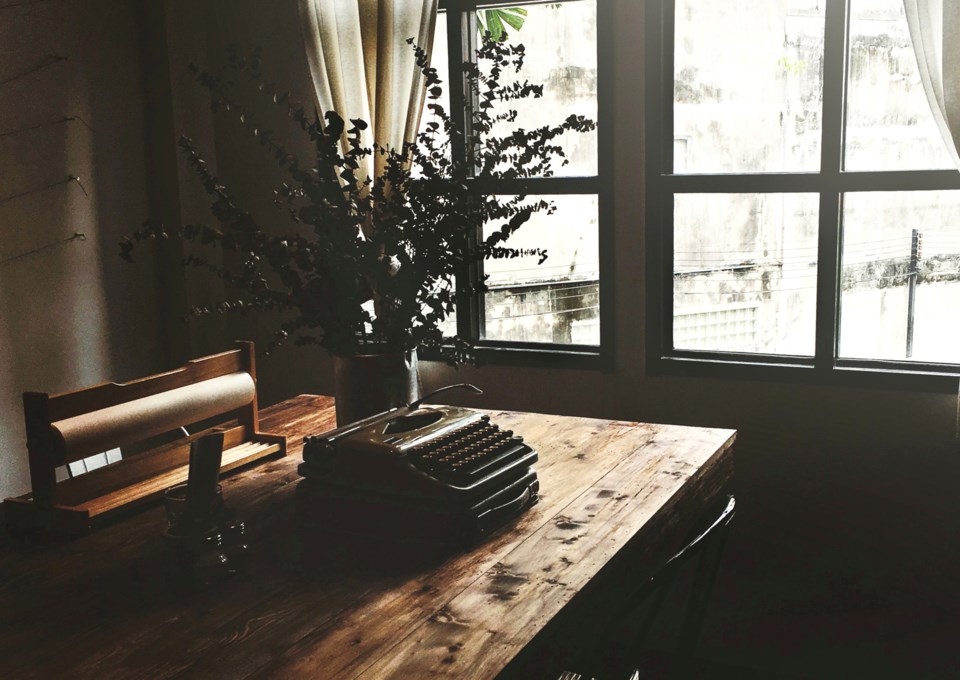It’s an interesting thing, how moments from decades ago come back to you out of the blue – and how often those moments still resonate with the new self we have become in the intervening years.
The other night, as I was pondering this blog post, I was visited by a moment from early in my journalism school career. It must have been nearly three decades ago, and I was a young and eager student looking to take a class assignment I’d done about a university athlete and attempt to sell the story to the local newspaper. Except the athlete in question didn’t want me to; she was too embarrassed to have her story told in public.
Her reluctance to have me share her story in public brought me up short. At first, I admit, I was simply irritated: I’d done all this work on my super-awesome-amazing story and my instructor thought I should try to publish it, and here was this person standing in my way.
I was irritated because, right then and there, I was still thinking of it as “my” story.
I don’t really recall the thought path that led me to the realization that I had it all backwards. That it wasn’t “my” story at all but hers, and that she was giving me her trust by sharing it with me. The moment when I realized that I owed her the obligation of protecting that trust was, perhaps, one of the most eye-opening moments I had as a fledgling reporter.
For the record, she eventually did end up giving me permission to try to sell her story. And wouldn’t you know it? The newspaper didn’t want it, so it never did get published.
But the lesson stuck with me.
Even now, all these years later, I still have moments where I’m reminded what a profound and sacred trust it is to hold other people’s stories in my hands and to tell them publicly.
I was reminded the other week, when I sat down with guitarist David Sinclair to talk about the 50-year career that led to his induction into the B.C. Entertainment Hall of Fame; and again just days ago, when I met with Jennifer Pielak and Peter Abando to talk about the creation of their new Fringe musical Inside Voices.
To sit down over coffee, notebook in hand, and listen as people open up about their lives, their experiences, their thoughts, their hopes, their fears, their successes and failures and plans and dreams … it’s an incredible gift. To have people – people who are often strangers, who have no relationship with us as reporters and no reason to trust us – be willing to be honest and vulnerable and funny and emotional and quirky and real; that’s an experience that we, as storytellers, should never take lightly.
Storytelling is so much a part of who we are, as humans.
Scratch that. It’s not a part of who we are – it is who we are. We are a species of storytellers, and the history of humankind is the history of storytelling, of living a narrative that we pass on to each successive generation.
We live our lives in story. It’s everywhere – in the shows we watch on TV, the books we read, the news we consume, the music we listen to, the dreams we dream, the games we play, the art we make, the random conversations we have with family and friends and strangers on the SkyTrain.
To take those stories and to shape them for an audience is a unique and particular privilege.
It’s easy to forget all that sometimes, in the day-to-day rush of this fast-paced world we live in, where headlines flash by us on all manner of devices faster than we could ever hope to read them. It’s easy to forget, as reporters, that the “content” we’re creating at an ever-more-rapid pace isn’t just letters and words and sentences; that our obligation extends further than not making egregious factual errors and catching embarrassing typos and hopefully not mangling the structure of the English language too much along the way.
No, not every story is a deep exposé of a profound truth or a journey into another person’s psyche. Many of the stories we write are more bread-and-butter than that; straightforward accounts of facts and information that our readers want to know. And getting those stories right is an important part of our jobs.
But those other times – those times when we’re talking to real people about their real lives, when we’re holding in our hands their moments of vulnerability and fragility and given permission to speak those thoughts aloud on their behalf?
Those are the moments that make it a gift to be a reporter.
Those are the moments that give me faith that, however much the media industry may change in the coming years, there will always be an audience for a good story, well told.
We are creatures of story, you and I.
Thank you for allowing me to be one of your storytellers.



